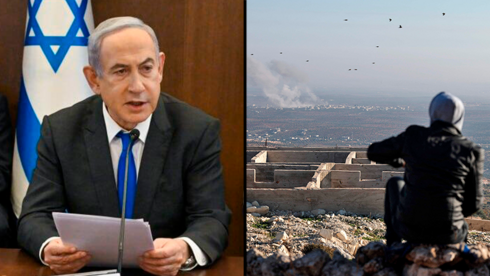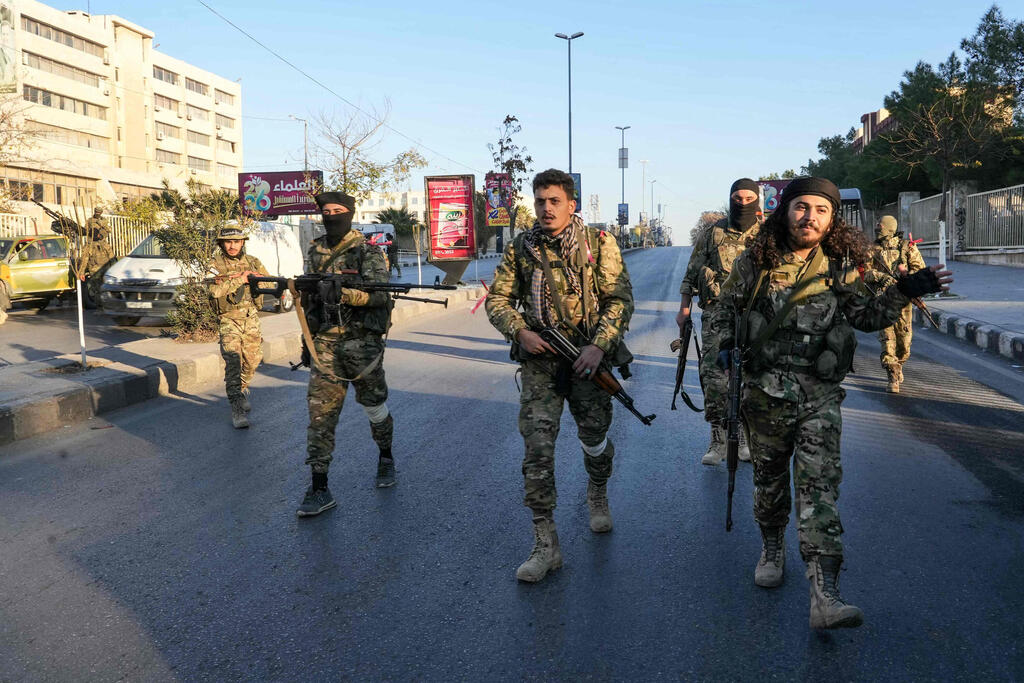Analysis: The offensive launched with the aid of Turkey on Assad and his Shiite militias is likely a result of the cease-fire deal in Lebanon and leaves Damascus without Hezbollah, Iran and the Russian help it previously enjoyed
The surprise attack by Sunni rebels in Aleppo is likely strongly connected to the cease-fire between Israel and the Shiite Hezbollah terror group. The rebels, supported by Turkey, controlled the Idlib province in Syria after the Assad regime with the help of Russia and Iran, pushed them out of most of the country. There they regrouped, united all splinter Sunni groups and continued their fight.
The turning point came when Nasrallah launched his war against Israel on October 8 2023, and when Iran had to come to its proxy’s aid, especially in recent months.
To prevent Iranian assistance to Hezbollah, the IDF, according to foreign reporting, launched some 70 strikes in Syria, not only along the border with Lebanon, where arms are transported but on warehouses and instillations belonging to Hezbollah and other Shiite militias around the country.
3 View gallery


Benjain Netanyahu, Insurgents launch an offensive on Allepo
(Photo: GOP, Muhammad Haj Kadour / AFP)
Sunni insurgents launch an offensive in Aleppo
Those militias had been helping the Assad regime remain in power, along with Iran’s Revolutionary Guard Corps, (IRGC) and have been fighting the insurgents in Idlib.
The Russian’s are considered Assad’s main military support ,but they operate from the air, which is not enough to push the insurgents back or cause them substantial casualties.
Damascus needs forces on the ground and that is the role of the IRGC and Syrian Shiite militia’s commanded by Hezbollah, which is currently badly beaten and unable to help Assad’s small and poorly armed military. Over the past year, they had been occupied with providing assistance to Hezbollah in Lebanon and to launch attacks on Israel from inside Syria.
The repeated Israeli attacks probably enabled the rebels to organize and with the help of Turkey, they were able to launch their offensive. Turkish President Recep Tayyip Erdoğan, himself an extreme Sunni Islamist, controls territory adjacent to Idlib province and provides them with arms.
On the one hand Turkey has been trying to repair relations with Assad’s regime but on the other, Erdogan seemed unable to pass up the opportunity presented by the weakness of Damascus, in the wake of the war in Lebanon. To him, the religious considerations outweigh Turkey’s national security.
Prime Minister Benjamin Netanyahu held consultations with security officials to evaluate the effects of the surprise attack in the north of Syria. Aleppo is the second largest city in the neighboring country and may outweigh Damascus in importance economically. Syria’s largest military industrial plants are located around it.
In the short-term, there would likely be a positive effect on Israel’s security. Assad will refrain from conflict with Israel in his weakened state and as he is losing control. He is also aware that Hezbollah would be unable to come to his aid and that if the IRGC deploys forces in his territory, they would likely be targeted by the IDF along with the Syria armed forces.
Assad therefore will be in no hurry to bring in Iranian force or allow to use Syria to transfer military equipment or logistical support to Hezbollah in Lebanon.
Assad wants to reserve his regime and a military altercation with Israel could further weaken his armed forces. Netanyahu warned Assad explicitly in an interview.
Russia’s interest is to protect the Assad regime, so that Russian companies would finally be able to profit from rebuilding after the devastating Syrian civil war. As long as the insurgency is not squelched, that can not happen so preventing any escalation in a conflict with Israel contradicts Moscow’s interests.
Russia is also embroiled in its war in Ukraine and is limited in its ability to assist Assad as it had in the past. Therefore, in the short-term, one can assume Assad will try to walk the tightrope: He would not want to anger the Iranians whom he needs but would also be fearful of what the IDF could so to his military.
For now, he will allow assistance to Hezbollah to flow through Syria but in small quantity, unlike the free flow of supplies in the past.
In the long-term, there should be concern in Israel because the Sunni insurgents are no less of a threat to Israel than those Shiite jihadists working as proxies of Iran. Hamas is an example of a Sunni jihadist threat to Israel. If Assad’s regime falls to the Sunni insurgents and Syria falls under their control, Israel will face a problem.
For now, at least, it appears that their offensive weakens not only Assad but Iran and Hezbollah as well. It may even prompt Assad to seek renewed ties to the West and to Moderate Arab Sunni nations including Saudi Arabia and the UAE.
Israel must be alert to the possibility of a Sunni Jihadist monster on its north-eastern border.



